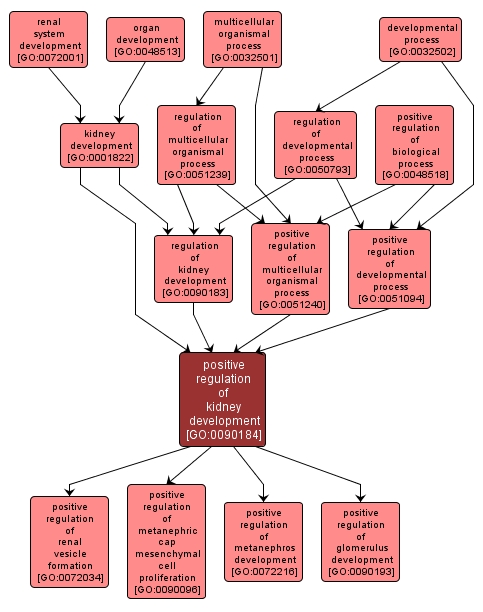| Desc: |
Any process that increases the rate, frequency or extent of kidney development. Kidney development is the process whose specific outcome is the progression of the kidney over time, from its formation to the mature structure. The kidney is an organ that filters the blood and excretes the end products of body metabolism in the form of urine. |














